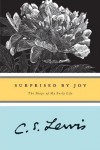Orlando by Virginia Woolf
"He --- for there could be no doubt of his sex, though the fasion of the time did something to disguise it --- was in the act of slicing at the head of a Moor which swung from the rafters."
My experience with Woolf's writing is limited yet expanding. I loved reading To The Lighthouse for its somewhat dream-like qualities and was rather pleasantly lulled by its stream-of-consciousness style. Mrs. Dalloway I enjoyed, but I didn't connect with it as much as I'd hoped and was left in a somewhat puzzled frame of mind at the end. After reading Orlando, I was left with this same feeling. What exactly did I just read and who was this Orlando?
Orlando is a young man born in the reign of Elizabeth I, and the novel follows him through his youth, as he has an affair with a Russian princess, cares for his ancestral estate, travels on diplomatic missions, etc. The theme of writing is also explored, in his rejection by a famous poet and various other allusions. Finally he falls into a trace and, lo, awakes a woman. This transformation does not seem to surprise him, and she carries on her life as if nothing remise has occurred, yet upon returning to England she finds her estate embroiled in financial turmoil. While remaining a woman, she fashionably switches between genders, eventually marries a sea captain, wins the lawsuit with regard to her property and that's about it. Woolf herself acts as an historical biographer and with her comic and satirical descriptions of certain people, I wasn't sure if she was parodying herself as narrator, or taking a poke at a particular figure of her time and society.
Honestly I don't have much to say about the book. Twentieth century literature always does this to me. I expect to be "informed and amused," as books attempted to do historically (see my Gulliver's Travels post for some extra information on writers' intent) and end up somewhat disappointed when I'm only amused. While I enjoyed the book, it would probably get only 3.5 stars from me. In spite of my resolution to love it, 20th century literature always falls short. Certainly the stream of consciousness writing is an interesting experiment, the disjointed prose perhaps a comment on the human psyche and the other artistic experiments are worth examining, but I'm always left with an empty feeling at the end. What was the author really trying to say? What did I learn? What could I take away from the book that would change me in some fundamental way?
Yet, it turns out Woolf herself perhaps was not as satisfied with Orlando as she'd hoped. Woolf wrote in her diary:
"I have written this book quicker than any; and it is all a joke; and yet gay and quick reading, I think; a writer's holiday."
"......... begun ..... as a joke: and now rather too long for my liking. It may fall between stools; being too long for a joke, and too frivolous for a serious book."
"Orlando taught me how to write a direct sentence; taught me continuity and narrative and how to keep the realities at bay. But I purposely avoided, of course, any other difficulty. I never got down to my depths and made shapes square up, as I did in the Lighthouse ...... I want fun. I want fantasy."
And yes, Woolf wasn't meaning this book to be serious at all:
"My notion is that there are offices to be discharged by talent for the relief of genius: meaning that one has the play side; the gift when it is mere gift, unapplied gift; and the gift when it is serious, going to business. And one relieves the other."
And so Orlando was a playful, frivolous fantasy that enraptures the reader, as Woolf captures your imagination with her wonderfully vibrant prose and light-hearted fanciful tone. And I can enjoy it on that level. Yet it is still only a wonderfully decorative cake, and I feel like I've missed the main meal.
O at Behold the Stars has an excellent review of Orlando, and with her comprehensive knowledge of Woolf, will be able to give you much more insight into the book than I have.

 2
2









